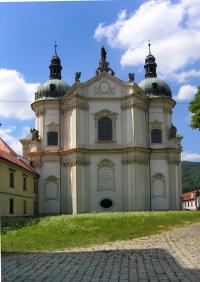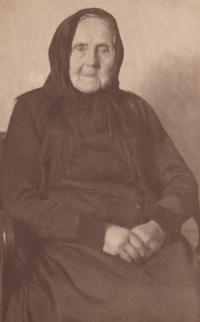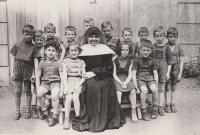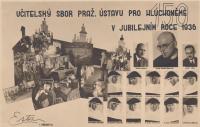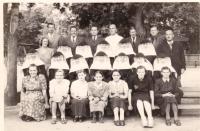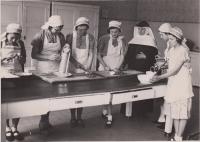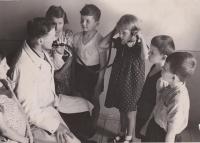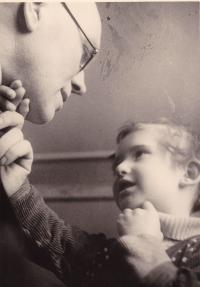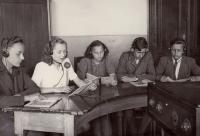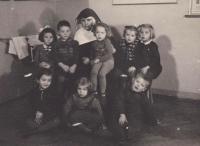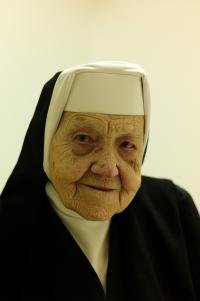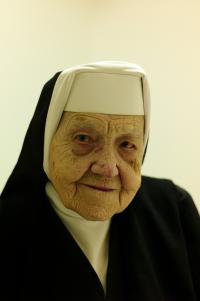I took eternal vows of poverty, chastity, and obedience

Download image
Růžena Doušová was born in Radomyšl near Strakonice on March 7, 1915, the eighth of of ten children. After her mother’s death, Růžena attended the primary school in Strakonice for two years, followed by another two years in Horažďovice. In 1930 she applied to a teacher’s institute in České Budějovice. Upon graduating in 1934 she entered the novitiate at the monastery of the Sisters of Notre Dame in Horažďovice. There she was given the monastic name Marie Paulína. The General Council sent her and two other sisters to an institute for the deaf and mute in Prague-Smíchov. She did not undergo any training in special education before her work at the institute, but she tackled the specificities of teaching deaf and mute children quickly with the help of the experienced sisters. In 1950 the Institute was taken under the auspices of the Central National Committee of the Capital City of Prague. Although the Communist regime had already began persecuting the Catholic Church and its institutions, the nuns were allowed to retain their responsibilities because there was no one available to replace them. This was also the case of the institute for the deaf and mute. It was not until 1955 that the sisters were forcibly transferred to the so-called centralization point in Osek near Duchcov. There the trained nuns took up work with mentally handicapped youth. The next stop for Sister Marie Paulína was the monastery in Mnichov near Mariánské Lázně, which was relinquished by the army in 1960. Another institute for mentally handicapped youth was established there, and Sister Paulína rendered her services there until 1973, when she retired. At that time she fell severely ill with a heart disease and had to be hospitalised in Mariánské Lázně. After recovering she returned to Osek, where she replaced the deceased Sister Božetěcha in her function of treasurer. She now lives in the Congregation House in Prague, where she still helps with the accounting.
